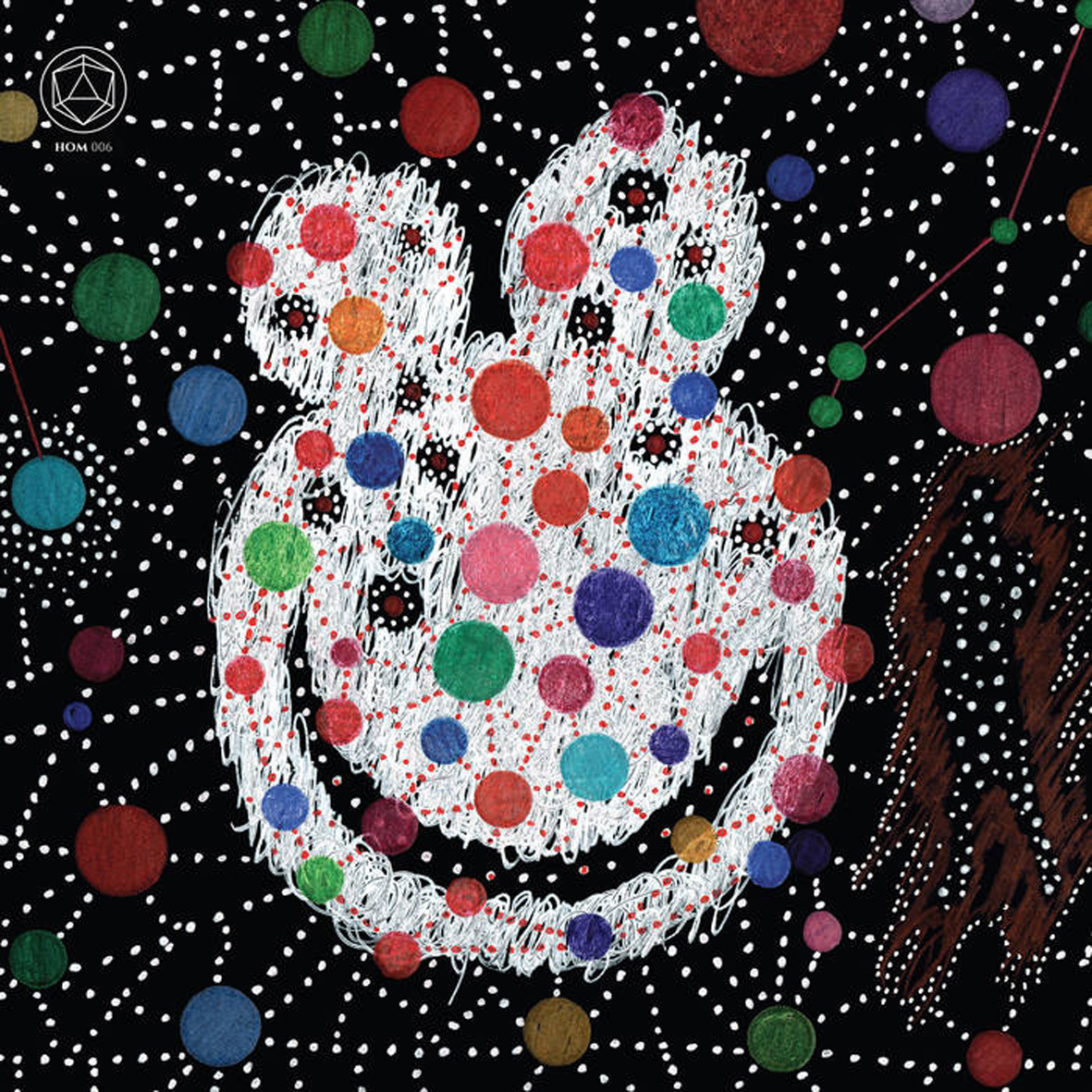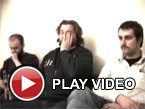Hypnopazüzu, "Create Christ, Sailor Boy"
 This collaboration between David Tibet and early Current 93 alum and erstwhile Killing Joke bassist Youth is quite a fascinating, bizarre, improbable, and intermittently perplexing release.  Given how little attention I pay to mainstream music, I had completely forgotten that Youth also has an ongoing project with Paul McCartney (The Fireman) and a long history of production and remix credits involving artists like U2, Depeche Mode, Erasure, and almost Duran Duran.  In short, he is primarily an ingenious chameleon whose greatest gift lies in adapting to new situations, figuring out how to make the most of them, and egolessly fading into the background.  That is exactly what he has (mostly) done with Create Christ, Sailor Boy: consciously opting to be as invisible as possible.  As such, this album is primarily a showcase for David Tibet's snarling and singular poetic rantings presented on an epic scale, some of which rank among his best.
This collaboration between David Tibet and early Current 93 alum and erstwhile Killing Joke bassist Youth is quite a fascinating, bizarre, improbable, and intermittently perplexing release.  Given how little attention I pay to mainstream music, I had completely forgotten that Youth also has an ongoing project with Paul McCartney (The Fireman) and a long history of production and remix credits involving artists like U2, Depeche Mode, Erasure, and almost Duran Duran.  In short, he is primarily an ingenious chameleon whose greatest gift lies in adapting to new situations, figuring out how to make the most of them, and egolessly fading into the background.  That is exactly what he has (mostly) done with Create Christ, Sailor Boy: consciously opting to be as invisible as possible.  As such, this album is primarily a showcase for David Tibet's snarling and singular poetic rantings presented on an epic scale, some of which rank among his best.
Throughout its many incarnations, Current 93 has always been a reliably eccentric and aberrant project, both musically and lyrically.  Consequently, the most immediately striking aspect of Create Christ is the straightforward simplicity of Youth’s synthesizer arrangement on the opening "Your Eyes in the Skittle Hills." In one respect, it feels somewhat anonymous when compared to David Tibet's usual fare, but the lush neo-classical grandeur nevertheless suits Tibet's wild-eyed proclamations quite beautifully.  If Tibet has composed an epic, impassioned, and otherworldly tale, it makes sense that it should have a suitably epic-sounding backdrop.  It is no small feat to wield dynamics so effectively that lines like "You and moonbeams walking through the walls" or "In the dead forest, your lips like planet cream" can seem incredibly heavy and deeply profound.  Also, it definitely seems like Tibet found his new sonic environs quite inspiring, as he does a lot more actual singing than usual, surprising me with lots of sustained notes and frequently straining into the upper end of his range.  He is also quite throaty throughout Sailor Boy, escalating the intensity of significant moments with an impressive battery of growls and howls.  In fact, the album actually feels like a bizarre religious experience at times, unpredictably and seamlessly veering from sublime chant-like beauty to demonic snarling ("you groovy girls with teeth!") within the same song.
Youth's decision to hang in the background "so you only hear the stories" means that Create Christ is a lot like being harangued by a half-mad prophet who just emerged from a few decades (or centuries) of seclusion in the desert: the breathless torrent of words is a bewildering mixture of striking poetry, arcane wisdom, cryptic jokes, puzzling allusions, beautiful imagery, and personal obsessions.  I mean that in the best way possible, of course.  Skittles, the stars, cats, penguins, Christ, Archie comics, ghosts, dead languages, flowers, the moon, and Pinocchio all seem to hold a place of honor within Tibet's hermetic personal mythology and all seem importantly intertwined.  I have long believed Tibet to be one of most brilliant and fascinating artists around, but his vision is a unquestionably uniquely personal one.  The gulf between his world and mine is quite substantial, so the trick is always to harness and present the phantasmagoric fever dream of his words into something more universally meaningful.  When that fails, Hypnopazüzu merely sounds like distinctive free-associative poetry that presents an enigmatic and beautifully worded puzzle of associations.  That is fine, obviously, but it is an intellectual pleasure rather than a visceral one.  When the trick works, as it does on pieces like "Skittle Hills" and "Christmas with the Channelers," it can be absolutely revelatory.  Words are Tibet’s unquestionably primary weapon of choice, but the meaning and power of these pieces can greatly transcend those origins when the flow, content, emphasis, melody, and underlying chords unexpectedly converge in the perfect place.
As distinctive, striking, and mesmerizing as this album is, it is not without its occasional misfires.  The most egregious one is "Sweet Sodom SingSongs," where Youth abandons his trusty Moog for a foray into a languorous tabla- and tambura-fueled raga groove.  Initially, it is quite good, but then it unexpectedly departs from Om-like territory into a major key hippie jam with the deeply unfortunate refrain of "It’s tool time!"  Elsewhere, Youth is guilty of over-egging the pudding a bit, particularly with the dramatic faux-string flourishes of "Pinocchio’s Handjob" and the soaring orchestral swells of "The Crow at Play." David Tibet is already a dramatic supernova, so bolstering his performances with any sweeping, cinematic touches just feels uncomfortably over-the-top (though the line separating epic and bombastic is admittedly quite a blurry and subjective one).  Elsewhere, I found the shifting nature of the Hypnopazüzu aesthetic a bit awkward, as "trippy Eastern-damaged rock band" and "lush neo-classical goth pop" are fairly divergent threads to seamlessly bounce between.  The brief and gently psychedelic interlude of "Incidentally, Shaitan" worked quite well though–I wish that facet had been explored much more.  Shortcomings, missed opportunities, and unevenness aside, however, Create Christ is still quite a unique and inspired statement and worthy addition to Tibet's impressive oeuvre.  Obviously, it would be nice if every song were as wonderful as "Your Eyes in the Skittle Hills," but it is hard to be begrudge an album for only containing a couple of stone-cold, transcendental masterpieces.
 



